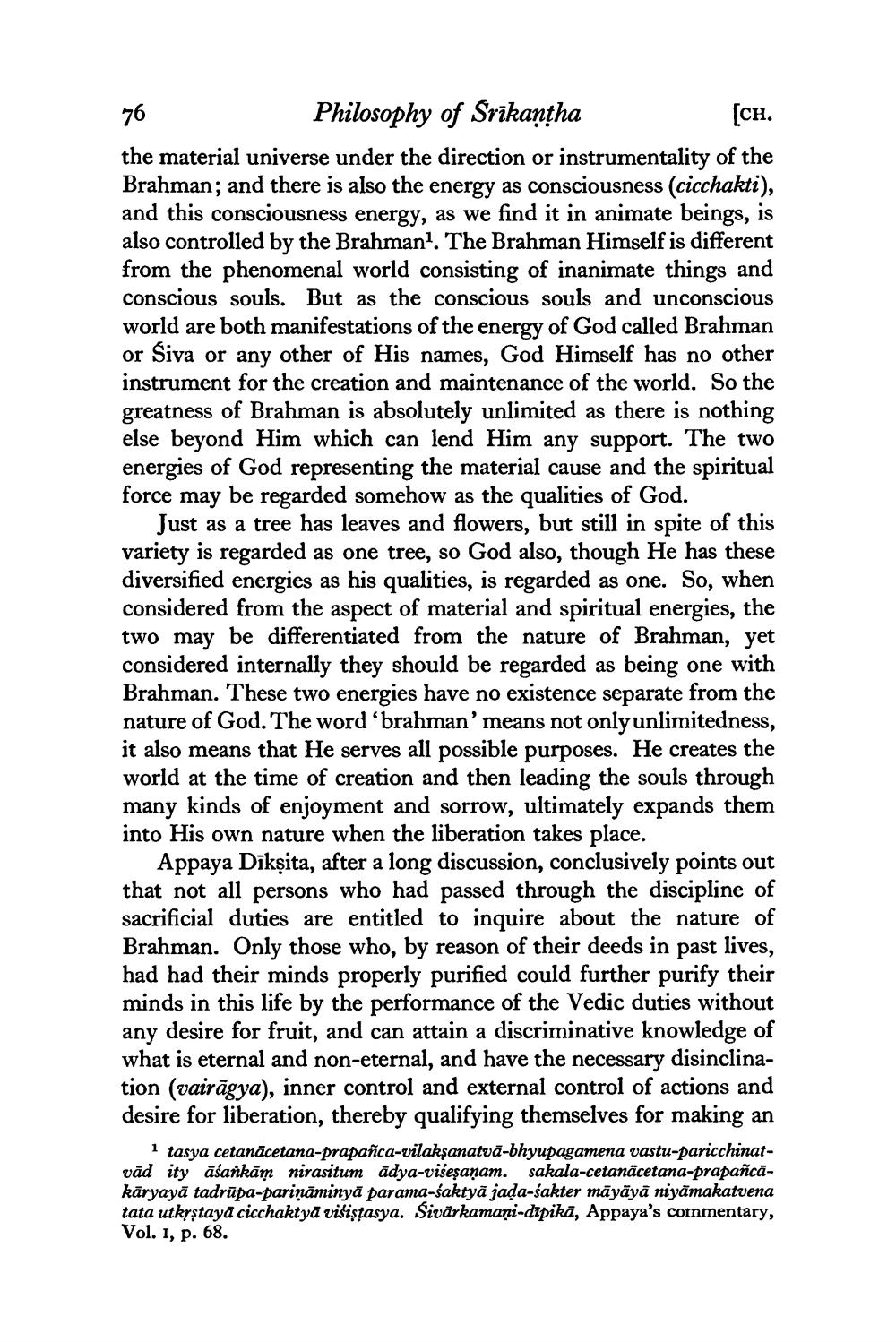________________
76
Philosophy of Srikantha
[ch. the material universe under the direction or instrumentality of the Brahman; and there is also the energy as consciousness (cicchakti), and this consciousness energy, as we find it in animate beings, is also controlled by the Brahman'. The Brahman Himself is different from the phenomenal world consisting of inanimate things and conscious souls. But as the conscious souls and unconscious world are both manifestations of the energy of God called Brahman or Siva or any other of His names, God Himself has no other instrument for the creation and maintenance of the world. So the greatness of Brahman is absolutely unlimited as there is nothing else beyond Him which can lend Him any support. The two energies of God representing the material cause and the spiritual force may be regarded somehow as the qualities of God.
Just as a tree has leaves and flowers, but still in spite of this variety is regarded as one tree, so God also, though He has these diversified energies as his qualities, is regarded as one. So, when considered from the aspect of material and spiritual energies, the two may be differentiated from the nature of Brahman, yet considered internally they should be regarded as being one with Brahman. These two energies have no existence separate from the nature of God. The word 'brahman'means not only unlimitedness, it also means that He serves all possible purposes. He creates the world at the time of creation and then leading the souls through many kinds of enjoyment and sorrow, ultimately expands them into His own nature when the liberation takes place.
Appaya Dīkṣita, after a long discussion, conclusively points out that not all persons who had passed through the discipline of sacrificial duties are entitled to inquire about the nature of Brahman. Only those who, by reason of their deeds in past lives, had had their minds properly purified could further purify their minds in this life by the performance of the Vedic duties without any desire for fruit, and can attain a discriminative knowledge of what is eternal and non-eternal, and have the necessary disinclination (vairāgya), inner control and external control of actions and desire for liberation, thereby qualifying themselves for making an
1 tasya cetanācetana-prapañca-vilaksanatvā-bhyupagamena vastu-paricchinatvād ity āśankām nirasitum ādya-visesanam. sakala-cetanācetana-prapancakāryayā tadrūpa-pariņāminyā parama-śaktyā jada-śakter māyāyā niyāmakatvena tata utkyştayā cicchaktyā višistasya. Sivärkamani-dīpikā, Appaya's commentary, Vol. 1, p. 68.




